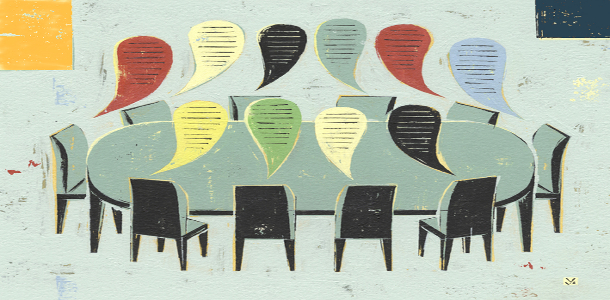




11 examples of exclamation-point abuse
There’s a “Seinfeld” episode in which Elaine breaks up with her boyfriend over his failure to use an exclamation point. If you don’t remember it, Elaine’s boyfriend had written down some phone messages, one of which said that her friend had a baby. Elaine found it “curious” that he didn’t think someone having a baby warranted an exclamation point. “Maybe I don’t use my exclamation points as haphazardly as you do,” Elaine’s boyfriend tells her: I’ve had several conversations recently about the overuse, abuse, and misuse of exclamation points. These...

Posted by laurajane on Mar 9, 2016 in Uncategorized | Comments Off on How do you deal with nitpicking co-workers?
How do you deal with nitpicking co-worke...
If you’ve had co-workers and execs who think they can complete communications tasks better than you do, you’re not alone. Though from a designer’s point of view, a comic from The Oatmeal titled “How a Web Design Goes Straight to Hell” chronicles the pain that know-it-alls inflict on PR pros and communicators. Projects can easily get derailed when executives, managers and random co-workers feel obligated to make changes to your work—all so they feel like they’ve done their job. How many times have you heard something like this? · “I made an A in my college...

Famous writers’ idiosyncrasies
Corporate communicators can be an eccentric bunch. Whether it’s because we write for a living or because we write for a living in a corporate environment, we all have idiosyncrasies—and may develop more as we continue to pen phrases. We balance the sometimes-unreasonable demands of clients and executives with the need to craft messages that are clear and concise. We argue with others about which lazy corporate verbs should be banned from our writing. We correct the grammar in the books that we read out loud to our kids. Throughout my career in corporate communications,...













